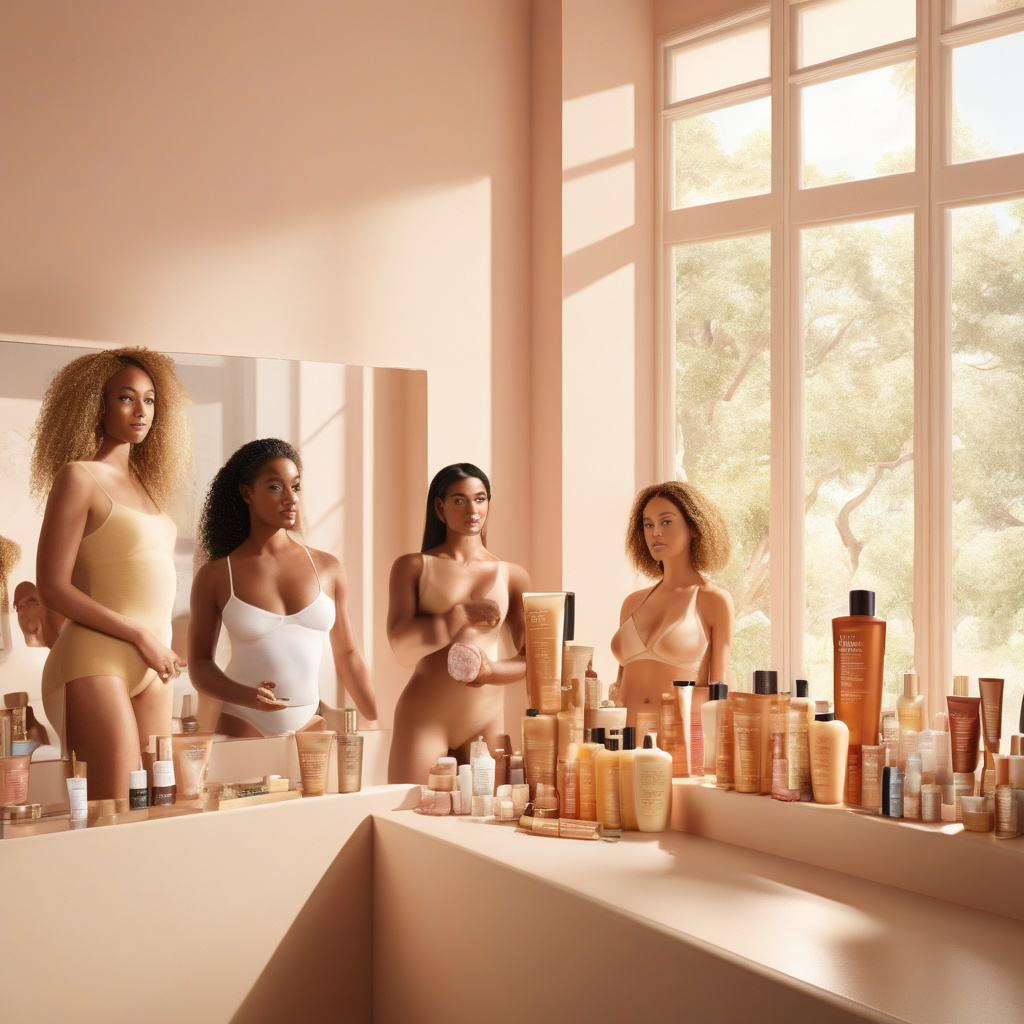The Rise of Self-Tanning Brands Catering to Women of Colour
In the ever-evolving world of beauty and skincare, self-tanning products have become a staple for many individuals looking to achieve a sun-kissed glow without the harmful effects of UV exposure. While traditionally marketed towards individuals with lighter skin tones, there has been a noticeable shift in recent years, with Gen-Z beauty consumers of colour increasingly turning to self-tanners to enhance their radiance and glow. However, their goal is not to darken their skin but to embrace their natural beauty and even challenge societal beauty standards, including colorism. This shift in consumer behavior has created a demand for self-tanning brands to expand their product offerings and cater to a more diverse audience.
For years, the beauty industry has been criticized for its lack of inclusivity, with many brands failing to offer products that cater to individuals with deeper skin tones. As a result, women of colour have often been left out of the self-tanning conversation, leading them to resort to products that may not necessarily complement their skin tones or provide the desired results. However, as more women of colour embrace self-tanning as a way to enhance their complexion and achieve a healthy glow, brands are beginning to take notice and adapt to meet the needs of this growing market.
To capture the attention of Gen-Z beauty consumers of colour, self-tanning brands must play catch-up and expand their shade ranges to include products that are specifically formulated for deeper skin tones. This not only requires a reevaluation of existing product lines but also a commitment to inclusivity and diversity in all aspects of the brand, from marketing campaigns to product development. By acknowledging the unique needs of women of colour and offering products that cater to their specific skin concerns, self-tanning brands can establish themselves as leaders in the industry and win over a new generation of consumers.
One self-tanning brand that has successfully tapped into this market is Coco & Eve, known for its innovative tanning products that cater to a wide range of skin tones. By offering products that are infused with nourishing ingredients and specifically designed to deliver a natural-looking tan on all skin types, Coco & Eve has quickly become a favorite among women of color looking for a self-tanner that complements their complexion. Similarly, Isle of Paradise has gained popularity for its inclusive approach to self-tanning, with products that are color-correcting and customizable to ensure a flawless finish on every skin tone.
In conclusion, the rise of self-tanning brands catering to women of colour reflects a broader shift towards inclusivity and diversity in the beauty industry. By recognizing the unique needs of this consumer group and offering products that cater to a wide range of skin tones, brands can position themselves as leaders in the market and build a loyal customer base. As Gen-Z beauty consumers of colour continue to drive demand for products that enhance their natural beauty and challenge traditional beauty standards, self-tanning brands have a valuable opportunity to capture this growing market and pave the way for a more inclusive future in beauty.
self-tanning, women of colour, inclusivity, beauty industry, diversity












